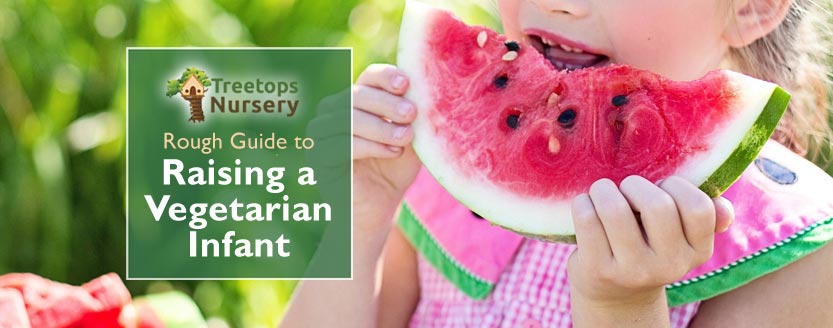
 More and more parents are bringing up youngsters as vegetarians these days, so we thought we’d put together a rough guide to raising babies, toddlers and preschoolers as vegetarians. When doing so, certain considerations will need to be made, including ensuring that meals are nutritious, containing all the necessary food groups, vitamins and minerals needed by the very young.
More and more parents are bringing up youngsters as vegetarians these days, so we thought we’d put together a rough guide to raising babies, toddlers and preschoolers as vegetarians. When doing so, certain considerations will need to be made, including ensuring that meals are nutritious, containing all the necessary food groups, vitamins and minerals needed by the very young.
Breast Milk
Babies will usually have breast milk or formula milk up until they are at least 6 months old. If they are only receiving breast milk, it’s recommended that they are given a suitable Vitamin D supplement, available as drops.
Vegetarian Formula Milk
There’s no need for Vitamin D supplements, though, with high quality, age-appropriate formula milk, as it’s already included. Formula-fed babies under six months should, of course, be receiving ‘First Milk’ (otherwise known as ‘First Infant Formula Milk’) and this contains everything they need during the first six months. It can be supplemented by solids once they start weaning, usually from the age of 6 months through to a year old.
 The good news is that formula milk that’s suitable for vegetarians is available. Parents may ask their midwife or health professional for any recommendations in regard to types or brands, particularly if one formula milk disagrees with the baby. However, whichever brand and type is chosen, the formula milk must be formulated for the baby’s specific age. This is usually obvious on the product label.
The good news is that formula milk that’s suitable for vegetarians is available. Parents may ask their midwife or health professional for any recommendations in regard to types or brands, particularly if one formula milk disagrees with the baby. However, whichever brand and type is chosen, the formula milk must be formulated for the baby’s specific age. This is usually obvious on the product label.
Vegetarian formula milks are usually based on cow’s milk although many other alternatives are available. Parents who wish to limit how much dairy products their infant consumes therefore have quite a wide choice but, if they’re avoiding dairy, they need to ensure that the formula milk is fortified with extra calcium and is unsweetened. They also need to read up because formula milk is a surprisingly big topic and can be a little bit of a minefield. There are several concerns over soya milk and rice milk, for instance, but those are just two examples. Check out our Formula Milk Guide for much more information about all the different kinds available as well as which formula milks to avoid.
Moving to Solids
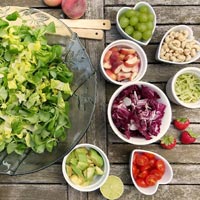 From around the age of 6 months, your baby will usually start the process of weaning off of milk and begin to eat solid foods, albeit given in puréed or liquidised form initially. This is when parents then need to be mindful of their child’s nutritional needs and this is even more pertinent when bringing up a child as a vegetarian.
From around the age of 6 months, your baby will usually start the process of weaning off of milk and begin to eat solid foods, albeit given in puréed or liquidised form initially. This is when parents then need to be mindful of their child’s nutritional needs and this is even more pertinent when bringing up a child as a vegetarian.
The four main food groups that need to be covered are:
- Starch, which can come from foods like pasta, cereal, potato and bread;
- Fruit and vegetables, whether fresh (ideally), tinned, frozen or dried;
- Protein, which we’ll come to in a moment;
- Dairy, which is OK for most vegetarians but not vegans. Dairy products need to be pasteurised, though, and full-fat versions are appropriate for little ones.
Sources of Protein for Vegetarian Children
Protein is often seen to be the most tricky of the food groups to cater for when bringing up a child as a vegetarian. With meat and even fish out of the picture for avid vegetarians, what options are available?
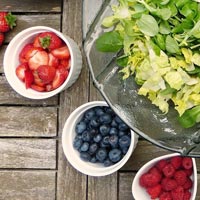 Well, tofu and other soya products will contain good quantities of protein.
Well, tofu and other soya products will contain good quantities of protein.- Nuts will too but you need to avoid whole nuts due to the potential choking hazard. So, smooth peanut butter, cashew butter, almond butter or seed butters will help with protein. Walnut butter is a wonderful source of Omega-3 too.
- Perhaps consider serving them on rye crackers.
- Indeed grains are high in protein but should be provided in ground form for babies to avoid choking. Similarly oats, barley, rice and quinoa are great protein sources, quinoa itself containing all 9 of the essential amino acids.
- Lentils, pulses, peas and beans are also great sources of protein.
- Houmous (based on chickpeas) is also great for protein but, again, keep it smooth to avoid choking hazards in the very young.
- For those not going the more strict vegan route, eggs and dairy products like cheese and yoghurt are good sources of protein. Eggs are a brilliant source of Vitamin B12 too, while dairy products are a great source of calcium and Vitamin D.
Your infant should have at least two portions a day of protein and these are essential in the absence of meat or fish, otherwise your child could miss out on not only the protein but also Omega-3 fatty acids, iron and amino acids (essential and non-essential varieties). So, protein from a variety of sources is advised.
What About Quorn?
Many vegetarian parents will eat Quorn (a popular mycoprotein) to replace meat. Is this any good for babies and infants?
While it is a great source of protein, it’s not recommended as a regularly eaten meat alternative for children under three because it can fill them up without giving them the necessary energy. That’s simply because it’s high in fibre but low in fat.
A Note About Iron
 Iron is essential for growing children and can be found in many of the foods mentioned above. That said, it’s worth mentioning that some foods block the absorption of iron. Such foods include tea as well as whole grains and legumes containing ‘phytates’, dairy products containing ‘casein’ and eggs and dairy products that contain particular forms of calcium. The simple solution to many of these is as follows:
Iron is essential for growing children and can be found in many of the foods mentioned above. That said, it’s worth mentioning that some foods block the absorption of iron. Such foods include tea as well as whole grains and legumes containing ‘phytates’, dairy products containing ‘casein’ and eggs and dairy products that contain particular forms of calcium. The simple solution to many of these is as follows:
- a) ensure the child has a varied diet,
- b) for them to eat such foods away from main meals,
- c) to include Vitamin C in the diet (as it will counteract the affect of phytates by binding to them) and
- d) to soak, cook or sprout the grains, pulses or seeds.
In regard to giving Vitamin C to help increase absorption of iron, children can try satsumas, oranges or tangerines after meals, a drink of well-diluted fruit juice (e.g. 1 part fruit juice to 10 parts water) or to include vegetables and fruit high in Vitamin C as part of their meals. These include many fruits and berries plus many vegetables including asparagus, broccoli, cauliflower, brussels sprouts, spinach, leafy greens, green or red peppers, tomatoes, potatoes and squash.
Vitamin Supplements
Age-appropriate vitamin drops may give parents peace of mind if their children are being brought up on a vegetarian diet. In fact, some parents on one or more specific benefits can receive free vitamin drops for children aged up to 4. These contain Vitamins A, C and D are suitable for vegetarians, also containing no milk or eggs. Note, however, that vitamin supplements are not required for children drinking the appropriate amount of nutritionally complete, age-appropriate formula milk each day.
We hope that this rough guide to raising an infant as a vegetarian is useful. It should only be used as a quick, introductory guide, though, so parents should do further research to get a more complete picture. It is also always wise, of course, to ask a health professional, GP or Health Visitor for their opinion on anything health-related for their individual child.
An Outstanding Nursery in Willesden
 Treetops Nursery offers the highest quality, freshly-prepared food using the very best ingredients available to our in-house chef each day. Children’s dietary requirements are all catered for and that includes those on a vegetarian diet. This is all part of the excellent weekday childcare services and healthy approach to nutrition provided at our nursery and pre-school. We cater for babies and children aged up to five.
Treetops Nursery offers the highest quality, freshly-prepared food using the very best ingredients available to our in-house chef each day. Children’s dietary requirements are all catered for and that includes those on a vegetarian diet. This is all part of the excellent weekday childcare services and healthy approach to nutrition provided at our nursery and pre-school. We cater for babies and children aged up to five.
If you are looking for an outstanding nursery, pre-school or childcare service in Willesden, near Willesden Green, Harlesden, Kensal Green or London NW10, please contact us by selecting a button below. We’d love to hear from you and to show you and your child around the nursery, so you can see for yourself what an excellent setting it is and how well your child will fit in. Please make contact as soon as possible to avoid disappointment, while a few places remain available:
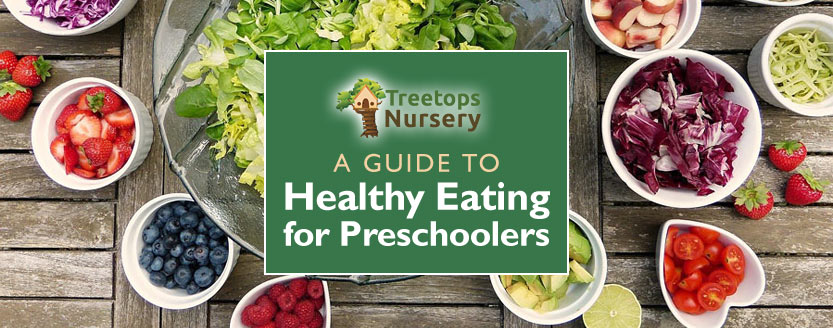
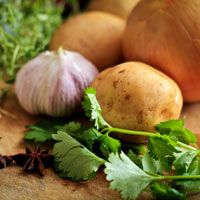 Healthy, Balanced Meals for Children
Healthy, Balanced Meals for Children The Benefits of Healthy Eating for Children
The Benefits of Healthy Eating for Children What Should Children be Eating & Drinking?
What Should Children be Eating & Drinking? Portion Sizes
Portion Sizes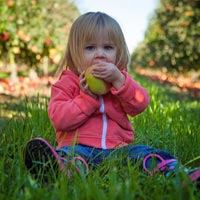 Healthy Eating at the Nursery
Healthy Eating at the Nursery